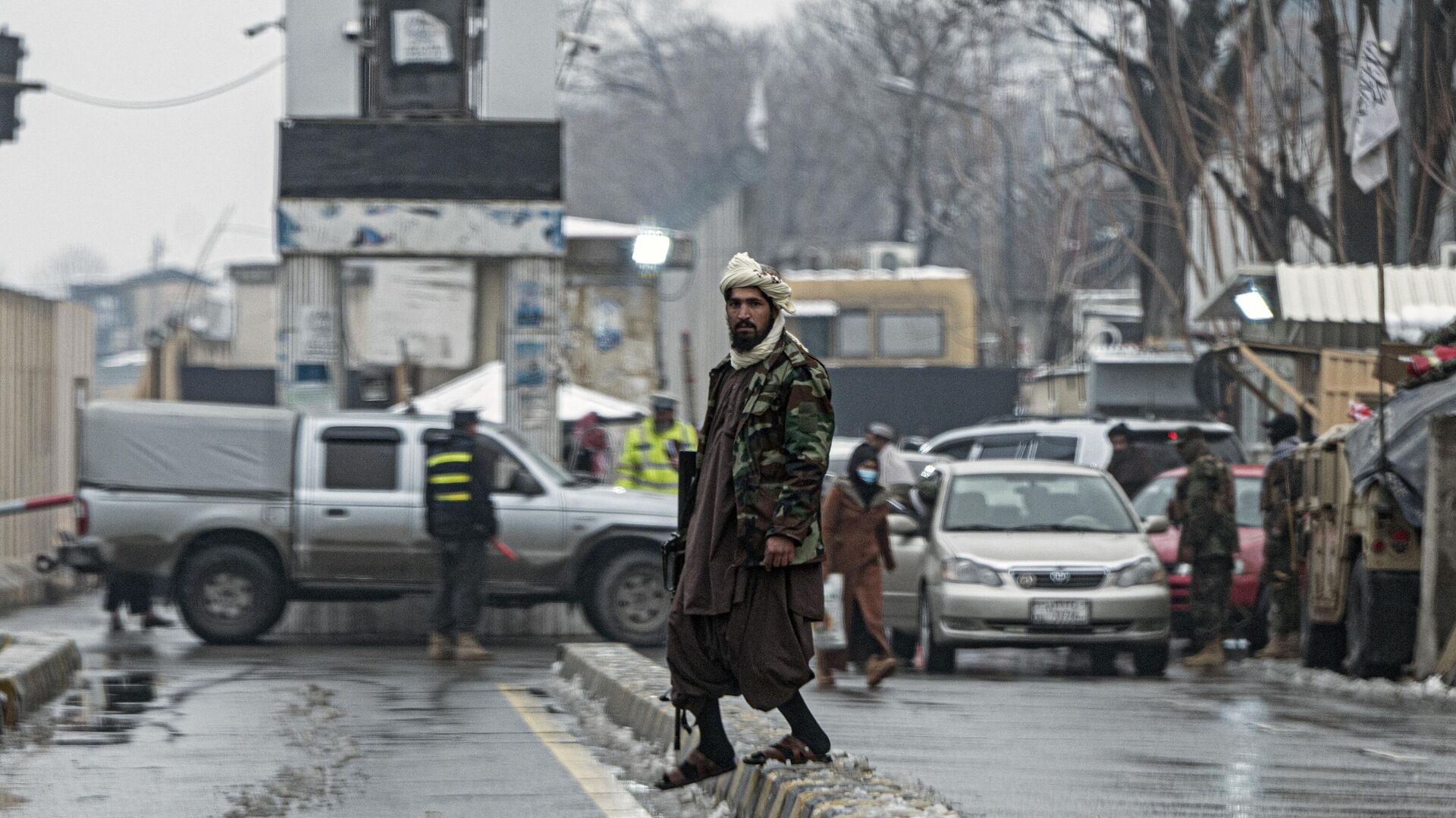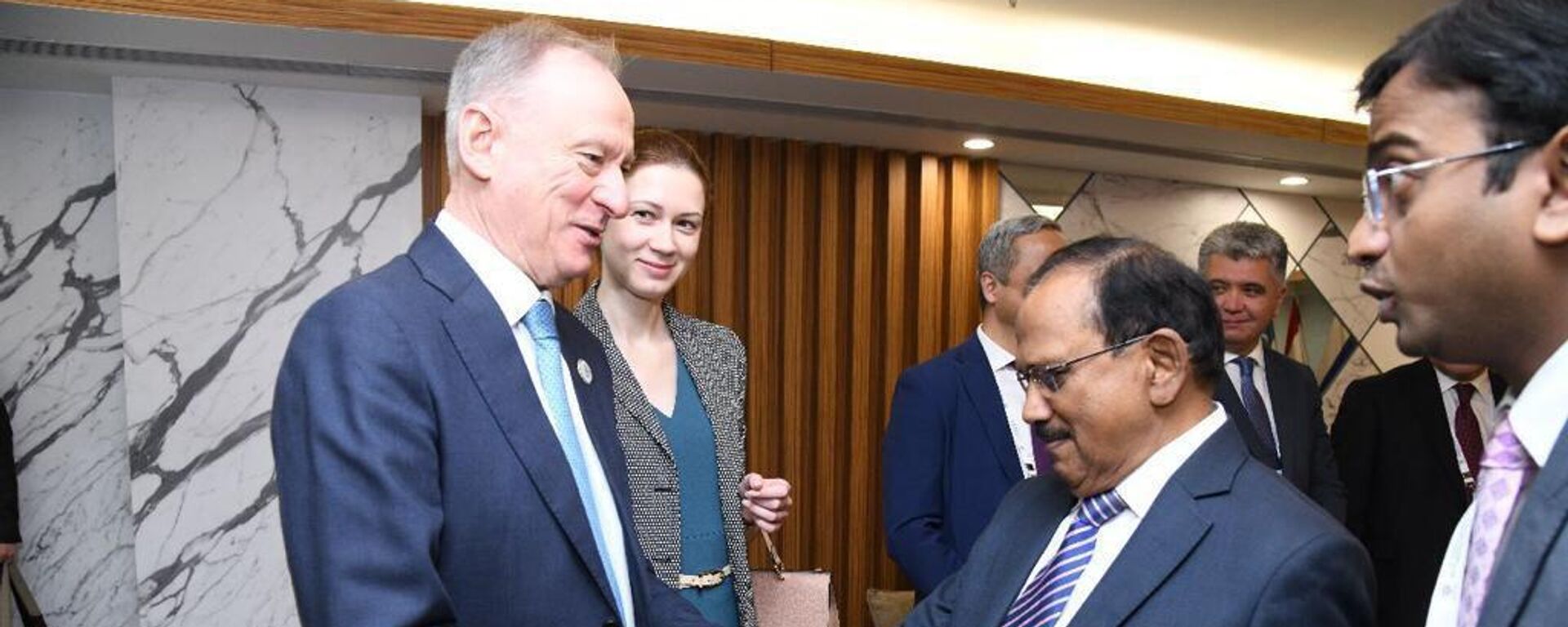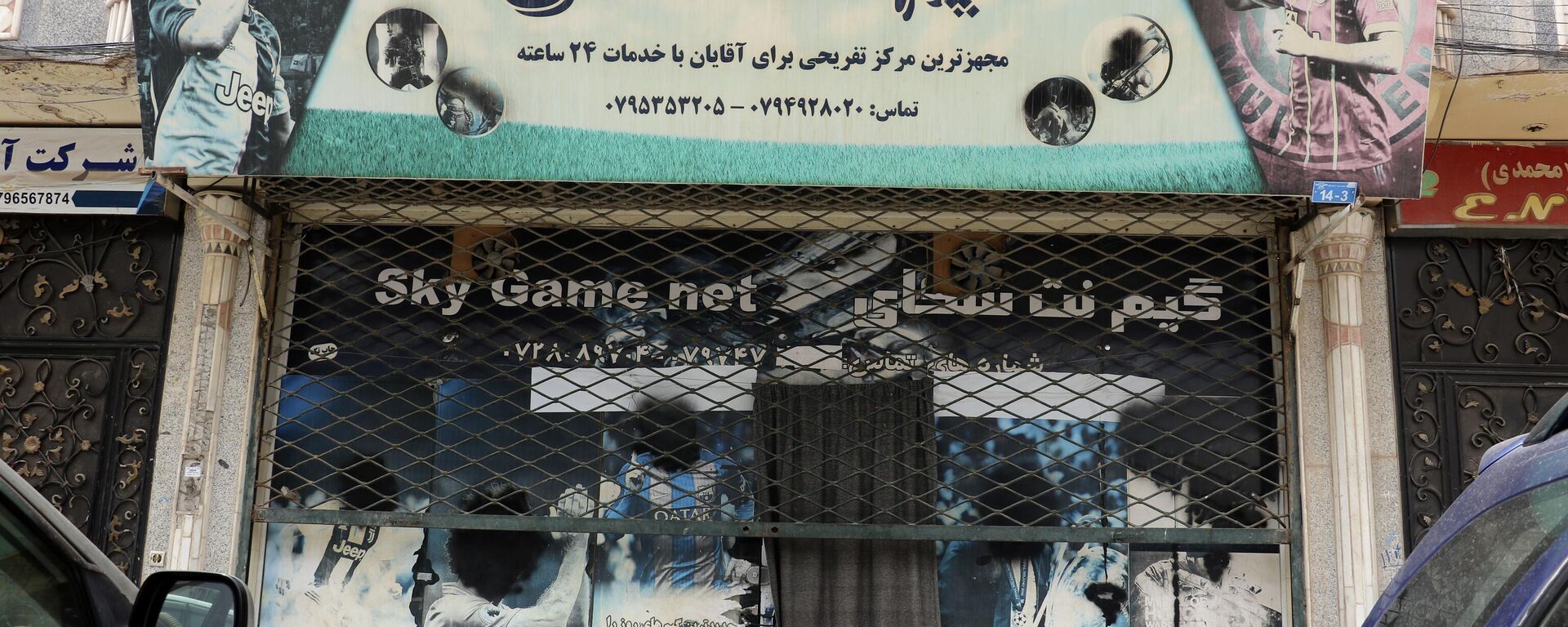https://sputniknews.in/20230414/theres-great-potential-for-india-russia-cooperation-on-afghanistan-experts-1536812.html
There's ‘Great Potential’ for India-Russia Cooperation on Afghanistan: Experts
There's ‘Great Potential’ for India-Russia Cooperation on Afghanistan: Experts
Sputnik India
There is a “great potential” for Russia and India to collaborate as far as stabilizing the political, security and economic situation is concerned, former Indian Ambassador Anil Trigunayat has told Sputnik.
2023-04-14T17:30+0530
2023-04-14T17:30+0530
2023-04-14T17:30+0530
long reads
afghanistan
india
taliban
pakistan
china
central asia
iran
https://cdn1.img.sputniknews.in/img/07e7/03/1b/1321888_0:159:3079:1890_1920x0_80_0_0_cb06271bb0771fbba5a477b8c7ceff85.jpg
There is a “great potential” for Russia and India to collaborate as far as stabilising the political, security and economic situation is concerned, former Indian Ambassador Anil Trigunayat has told Sputnik.Trigunayat, who has also served as New Delhi’s deputy chief of mission to Moscow, said that there is a growing realization among region countries about India’s “goodwill” among the Afghan population.He described Moscow’s policies towards Afghanistan as being “ambivalent” in the last few years as Russia sought to increasingly rely on Pakistan to conduct its diplomacy in the war-torn country.Russia's Special Representative for Afghanistan, Zamir Kabulov, has said Pakistan has had concerns vis-a-vis greater Indian involvement in settling the Afghanistan question. India wasn't part of the two Russia-convened meetings on Afghanistan- the 'Moscow Format' talks in 2021 in the lead-up to the Taliban takeover and the 'extended Troika' meeting in Qatar last August. New Delhi was back at the table at the latest edition of Moscow Format talks in November last year, amid the resurgence in terrorist activity by groups such as Daesh** and others, a worsening humanitarian situation, as well as Taliban's policies towards Afghan women. At the same time, New Delhi has launched its own mechanisms with Central Asian states to coordinate the respective positions on the Afghanistan issue. The inaugural India-Central Asia Summit, which culminated in the Delhi Declaration, was held in India last January. Hosted by Prime Minister Narendra Modi, the talks were attended by leaders of central Asian states to dwell on the Afghanistan situation as well as connectivity issues.According to UN agencies, Afghanistan faces a crippling paucity of funds as it needs $4.6 billion to lift its people out of dire poverty. Nine out of 10 Afghans face food insecurity, not knowing if they would be able to get their next meal, per the World Food Programme (WFP). To make matters worse, the UN has said that Taliban’s ban on women aid workers could exacerbate the situation.Growing Convergence Between India and Russia on Afghanistan, Says Military VeteranMajor General (retired) Shashi Bhushan Asthana, a strategic affairs expert and an Indian Army veteran, underlined that Moscow’s and New Delhi’s concerns on Afghanistan were very much “similar”.He noted that Moscow has been concerned about the increasing Daesh activity in Afghanistan and the threat of it spilling into the Central Asian states.On part of China, Iran and Pakistan, Asthana said that they faced their own share of terrorist threats due to the presence of East Turkestan Islamic Movement (ETIM)**, Baloch insurgents and Tehreek-e-Taliban Pakistan (TTP)**.He said that India has a “strategic interest” in Afghanistan’s stability due to its strategic location at the crossroads of connectivity projects as well as from the point of view of terrorism threats.He said that there is a strong case for India to get involved in a greater matter as he highlighted the role the India-backed port of Chabahar could play in the overall economic development of the region.Moscow's Proposal to Form a G-5 Involving IndiaThe comments by the experts come against the backdrop of the fourth ministerial conference of Afghanistan’s neighboring countries on 13 April in Samarkand, Uzbekistan. The meeting was attended by top diplomats from Russia, China, Iran, Pakistan, Tajikistan, Turkmenistan, and Uzbekistan.The second 'quadrilateral' meeting on Afghanistan among Pakistan, Iran, Russia, and China also took place on the sidelines of the Samarkand meeting.The official statements after the Samarkand meetings called upon the interim Afghan authorities to "take tangible action in fighting against terrorism and eliminating terrorist groups in the country, as well as lift restrictions on women, which have been barred from moving around freely in public and pursuing employment and educational opportunities under the Taliban.Importantly, the regional countries blamed the US and its western allies for the current security situation in Afghanistan and urged Washington to unfreeze Afghanistan's federal funds held in US-based financial institutions.Indian National Security Advisor Ajit Doval and Secretary of the Russian Security Council Nikolai Patrushev have agreed to further strengthen security cooperation, including on Afghanistan, during a couple of meetings this year.Taliban-Pakistan Ties Since August 2021The Taliban takeover of Afghanistan in August 2021 was lauded by Pakistan’s then-Prime Minister Imran Khan, who said that the Taliban have “broken the shackles of slavery”. Islamabad was a major non-NATO ally during US’ two-decade-long military involvement in Afghanistan.At the time, there were growing concerns in India that a Taliban-controlled Afghanistan would be used as part of Islamabad’s “strategic depth” policy to abet terrorist acts against New Delhi.’However, Pakistan’s hopes were dashed as its relationship with the Taliban grew fractious over the resurgence of Tehreek-e-Taliban Pakistan (TTP), a Taliban ally whose bases are based in Afghanistan, per the United Nations (UN). The Taliban and Pakistani border security have also been involved in border clashes over the disputed Durand Line.To top it all, Pakistan has been grappling with an economic crisis and has been negotiating the disbursement of a bailout package from the IMF under stringent terms, as per Islamabad.* under UN sanctions for terrorism** terrorist organisations banned in Russia
https://sputniknews.in/20230330/india-and-russia-discuss-ways-to-bolster-security-cooperation-1363098.html
https://sputniknews.in/20230413/iran-russia-pakistan-china-urge-us-to-take-responsibility-for-situation-in-afghanistan-1531733.html
afghanistan
india
pakistan
china
central asia
iran
Sputnik India
feedback.hindi@sputniknews.com
+74956456601
MIA „Rossiya Segodnya“
2023
Dhairya Maheshwari
https://cdn1.img.sputniknews.in/img/07e6/0c/13/138962_0:0:641:640_100x100_80_0_0_2cb44360dbcdf6d84bf4b299cd045917.jpg
Dhairya Maheshwari
https://cdn1.img.sputniknews.in/img/07e6/0c/13/138962_0:0:641:640_100x100_80_0_0_2cb44360dbcdf6d84bf4b299cd045917.jpg
News
en_IN
Sputnik India
feedback.hindi@sputniknews.com
+74956456601
MIA „Rossiya Segodnya“
Sputnik India
feedback.hindi@sputniknews.com
+74956456601
MIA „Rossiya Segodnya“
Dhairya Maheshwari
https://cdn1.img.sputniknews.in/img/07e6/0c/13/138962_0:0:641:640_100x100_80_0_0_2cb44360dbcdf6d84bf4b299cd045917.jpg
afghanistan news, afghanistan india, taliban india relations, taliban and the us, russia pakistan, russia pakistan news, afghanistan humanitarian crisis, afghanistan human rights, taliban women crackdown
afghanistan news, afghanistan india, taliban india relations, taliban and the us, russia pakistan, russia pakistan news, afghanistan humanitarian crisis, afghanistan human rights, taliban women crackdown
There's ‘Great Potential’ for India-Russia Cooperation on Afghanistan: Experts
New Delhi has stepped its engagements with Moscow as well as Central Asian states in a bid to forge multilateral coordination on Afghanistan.
There is a “great potential” for Russia and India to collaborate as far as stabilising the political, security and economic situation is concerned, former Indian Ambassador Anil Trigunayat has told Sputnik.
Trigunayat, who has also served as New Delhi’s deputy chief of mission to Moscow, said that there is a growing realization among region countries about India’s “goodwill” among the Afghan population.
He described Moscow’s policies towards Afghanistan as being “ambivalent” in the last few years as Russia sought to increasingly rely on Pakistan to conduct its diplomacy in the war-torn country.
“But, now the chips are down for Pakistan. On the other hand, India’s humanitarian efforts have been appreciated by the Taliban* and other countries,” Trigunayat underscored.
Russia's Special Representative for Afghanistan, Zamir Kabulov, has said Pakistan has had concerns vis-a-vis greater Indian involvement in settling the Afghanistan question. India wasn't part of the two Russia-convened meetings on Afghanistan- the 'Moscow Format' talks in 2021 in the lead-up to the Taliban takeover and the 'extended Troika' meeting in Qatar last August.
New Delhi was back at the table at the latest edition of
Moscow Format talks in November last year, amid the resurgence in terrorist activity by groups such as Daesh** and others, a worsening humanitarian situation, as well as
Taliban's policies towards Afghan women.
At the same time, New Delhi has launched its own mechanisms with Central Asian states to coordinate the respective positions on the Afghanistan issue.
The inaugural India-Central Asia Summit, which culminated in the Delhi Declaration, was held in India last January.
Hosted by Prime Minister Narendra Modi, the talks were attended by leaders of central Asian states to dwell on the Afghanistan situation as well as connectivity issues.
According to UN agencies, Afghanistan faces a crippling paucity of funds as it needs $4.6 billion to lift its people out of dire poverty. Nine out of 10 Afghans face food insecurity, not knowing if they would be able to get their next meal, per the World Food Programme (WFP).
To make matters worse, the UN has said that Taliban’s ban on women aid workers could exacerbate the situation.
Growing Convergence Between India and Russia on Afghanistan, Says Military Veteran
Major General (retired) Shashi Bhushan Asthana, a strategic affairs expert and an Indian Army veteran, underlined that Moscow’s and New Delhi’s concerns on Afghanistan were very much “similar”.
“The interests are increasingly converging, be it on the threat of terrorism, concern about the humanitarian situation, or forging an inclusive government,” Asthana said.
He noted that Moscow has been concerned about the increasing Daesh activity in Afghanistan and the threat of it spilling into the Central Asian states.
On part of China, Iran and Pakistan, Asthana said that they faced their own share of terrorist threats due to the presence of East Turkestan Islamic Movement (ETIM)**, Baloch insurgents and Tehreek-e-Taliban Pakistan (TTP)**.
He said that India has a “strategic interest” in Afghanistan’s stability due to its strategic location at the crossroads of connectivity projects as well as from the point of view of terrorism threats.
“In fact, Afghanistan is an area where the interests of all the neighbors are converging,” he underlined, backing a greater Indian involvement in the country.
He said that there is a strong case for India to get involved in a greater matter as he highlighted the role the India-backed port of Chabahar could play in the overall economic development of the region.
Moscow's Proposal to Form a G-5 Involving India
The comments by the experts come against the backdrop of the fourth ministerial conference of Afghanistan’s neighboring countries on 13 April in Samarkand, Uzbekistan.
The meeting was attended by top diplomats from Russia, China, Iran, Pakistan, Tajikistan, Turkmenistan, and Uzbekistan.
The second 'quadrilateral' meeting on Afghanistan among Pakistan, Iran, Russia, and China also took place on the sidelines of the Samarkand meeting.
The official statements after the Samarkand meetings called upon the interim Afghan authorities to "take tangible action in fighting against terrorism and eliminating terrorist groups in the country, as well as lift restrictions on women, which have been barred from moving around freely in public and pursuing employment and educational opportunities under the Taliban.
Importantly, the regional countries blamed the US and its western allies for the current security situation in Afghanistan and urged Washington to
unfreeze Afghanistan's federal funds held in US-based financial institutions.
At the meetings, Moscow reportedly reiterated the proposal of forming a G-5 grouping geared towards a political settlement in Afghanistan at these meetings. The G-5, if it materializes, would include Russia, China, Iran, Pakistan and India.
Indian National Security Advisor Ajit Doval and Secretary of the Russian Security Council Nikolai Patrushev have agreed to further strengthen security cooperation, including on Afghanistan, during a couple of meetings this year.
Taliban-Pakistan Ties Since August 2021
The Taliban takeover of Afghanistan in August 2021 was lauded by Pakistan’s then-Prime Minister Imran Khan, who said that the Taliban have “broken the shackles of slavery”. Islamabad was a major non-NATO ally during US’ two-decade-long military involvement in Afghanistan.
At the time, there were growing concerns in India that a Taliban-controlled Afghanistan would be used as part of Islamabad’s “strategic depth” policy to abet terrorist acts against New Delhi.’
However, Pakistan’s hopes were dashed as its relationship with the Taliban grew fractious over the resurgence of Tehreek-e-Taliban Pakistan (TTP), a Taliban ally whose bases are based in Afghanistan, per the United Nations (UN).
The Taliban and Pakistani border security have also been involved in border clashes over the disputed Durand Line.
To top it all, Pakistan has been grappling with an economic crisis and has been negotiating the disbursement of a bailout package from the IMF under stringent terms, as per Islamabad.
* under UN sanctions for terrorism
** terrorist organisations banned in Russia




